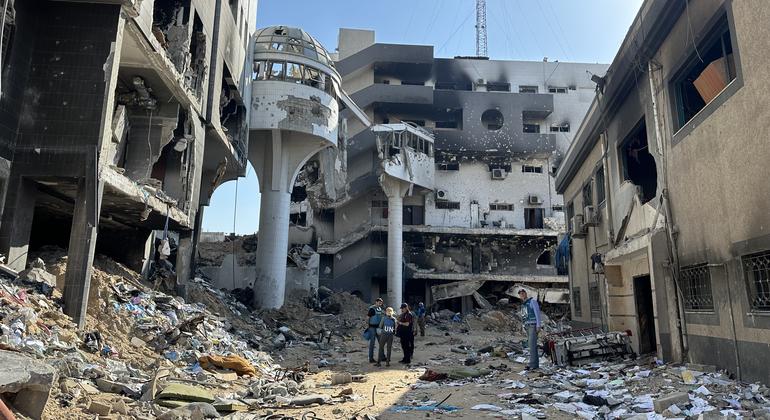The UN continues to respond to the crisis in Gaza and Lebanon


At a regular press conference, UN Spokesperson Stéphane Dujarric noted the dire situation as well as efforts to alleviate suffering and provide essential aid.
In the north-central region around Gaza City, limited fuel supplies on December 6 and 8 allowed four bakeries to continue operating at full capacity, allowing bread distribution to resume. to shelters and community kitchens, along with cooked meals.
However, the situation remains serious in other areas.
“In North Gaza and Rafah provinces, seven bakeries remain closed due to ongoing hostilities. And in Deir al Balah and Khan Younis, all eight bakeries are closeddue to powder shortages and safety concerns due to overcrowding,” Mr. Dujarric said.
Humanitarian partners are prioritizing flour distribution to households in southern and central Gaza, providing each family with a 25 kg bag of flour as stocks allow.
Prices skyrocketed
However, the skyrocketing costs show the severity of the supply shortage – as of December 1 in Deir al Balah, a 25 kg bag of flour cost as little as $280, while in Khan Younis, the price of flour is 245 USD, according to humanitarian partners.
“Providing more immediate food supplies to Gaza is critical to addressing the deepening hunger crisis. throughout the Gaza Strip,” the United Nations Spokesperson emphasized.
Health concerns are equally alarming. Severe access challenges prevent routine malnutrition screening, which is critical for identifying children in need of treatment. In the fourth quarter of 2024, only 151,000 of Gaza’s 346,000 children under 5 years old were screened.
In November, the United Nations and aid partners distributed supplementary food to children, despite logistical delays. The program reached 146,000 children in the provinces of Rafah, Khan Younis, Deir al Balah and Gaza.
Lebanon: Aid and reconstruction efforts
In Lebanon, the United Nations and partners are working to support the Government-led response, delivering vital food and water to communities in need in South Lebanon and Nabatieh provinces on Tuesday.
Mr. Dujarric informed journalists that Imran Riza, the United Nations Humanitarian Coordinator in Lebanon, had visited Dahieh, a southern suburb of Beirut, to assess the situation and humanitarian needs.
Here, Mr. Riza met with city leaders and local stakeholders, focusing on discussing recovery, rehabilitation and reconstruction efforts.
Security Council closed meeting
Later in the day, the United Nations Security Council met behind closed doors to discuss the situation in the war-torn Gaza Strip, with a brief presentation by Sigrid Kaag, the United Nations Senior Humanitarian and Reconstruction Coordinator.
Speaking to reporters after the meeting, Ms. Kaag emphasized the need for political will to resolve the crisis and ensure humanitarian aid reaches those in need.
“There is no alternative. No system can and will replace or compensate for the absence or lack of political will. This is political – political will and political choice,” she said, emphasizing that responsibility belongs to member states and conflicting parties.




